KIGALI, Rwanda (BG) — Rwandan President Paul Kagame has reiterated his critical stance on foreign aid, arguing that it creates long-term dependency and is often used as a tool for control.
In an interview with entrepreneur and interviewer Mario Nawfal aired Tuesday, Kagame emphasized the importance of reducing reliance on aid while building sustainable capacities for self-sufficiency.
Kagame said aid is a liability in the long run, but “it depends on how it is managed… We appreciate aid. We needed it and still need it to an extent. But we need it so that we build capacities not to need it in the near future.”
His comments come as the U.S. recently paused its aid program. In January, President Donald Trump announced a 90-day freeze on almost all U.S. foreign aid amid a review.
The freeze has affected several countries as well as the health, education and humanitarian sectors worldwide.
Kagame’s position on foreign aid is not new. Since taking office in 2000, he has been vocal about the dangers of dependency and the need for African nations to transition toward economic self-reliance.
Under his leadership, Rwanda has pursued policies to reduce reliance on foreign assistance, focusing on economic development, infrastructure, and local entrepreneurship.
Despite Rwanda’s economic progress, Kagame stated that rejecting continuous aid dependence has been met with resistance.
“We have been branded either arrogant, insensitive, or dictatorial, just because of that,” he said.
He also described instances where foreign entities insisted on providing aid despite Rwanda’s reluctance.
“Whoever gives you aid controls your life. In fact, that’s why they want you to stay with aid, so they continue controlling your life,” Kagame said, adding that aid is often “weaponized” to influence political and economic decisions.
Kagame’s perspective aligns with a broader debate on foreign aid’s role in Africa.
Critics argue that international aid fosters a cycle of dependency, stifling local industries and governance autonomy.
Conversely, many international donors and organizations maintain that aid remains essential for development, especially in regions struggling with poverty, conflict, and health crises.
Rwanda’s economic trajectory under Kagame provides a case study in aid utilization.
While the country has received significant foreign assistance, particularly after the 1994 genocide, it has also prioritized policies that encourage domestic revenue generation and private sector growth.
Rwanda’s efforts in technology, manufacturing, tourism, and infrastructure have contributed to consistent economic expansion.
According to the World Bank, after growing by an average of 8.2% in 2022–2023, Rwanda’s real gross domestic product (GDP) increased by 9.7% in the first half of 2024. Growth is projected to average 7.7% in 2025–26, driven by a recovery in global tourism, new construction projects, and manufacturing activities.
Rwanda aspires to become a Middle-Income Country by 2035 and a High-Income Country by 2050.
The broader implications of Kagame’s stance suggest a shift in how African leaders engage with international donors.
As debates over the future of foreign aid continue, Rwanda’s approach may serve as a model for nations seeking greater economic independence while navigating the complexities of global financial assistance.
Rwanda’s Push Toward Economic Self-Reliance
Rwanda has made notable strides toward economic self-reliance, driven by innovative policies and programs. Key initiatives include:
- Home-Grown Solutions: Programs such as Ubudehe (community-based development) and Girinka (One Cow per Poor Family) focus on poverty reduction, social cohesion, and agricultural productivity.
- Vision 2020 and Vision 2050: Vision 2020 provided a framework for Rwanda’s development, outlining key priorities for survival and dignity. Kagame has since introduced Vision 2050, which aims to shape Rwanda’s long-term future with an emphasis on economic transformation and higher living standards.
- National Service Programs: These initiatives engage youth in community service and skill-building, fostering patriotism and reducing unemployment.
- Investment in Infrastructure: Projects such as Kigali Innovation City aim to attract foreign investment and boost local industries.
Rwanda’s economic strategy reflects a deliberate effort to balance aid utilization with self-sufficiency, setting a precedent for other African nations seeking financial independence.




